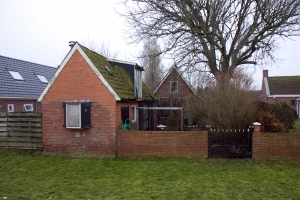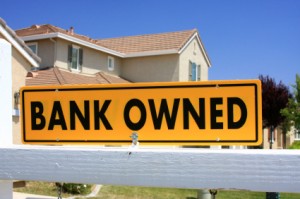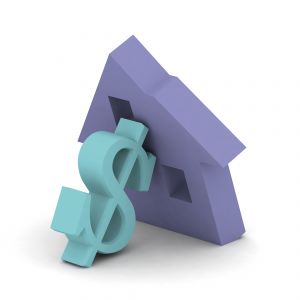
March 28, 2012
FHA Loan Questions: Interest Rate Caps
A reader asks, “Is there a limit to how much premium the lender can make on a loan? In other words is there a cap on the interest rate increase.

March 28, 2012
A reader asks, “Is there a limit to how much premium the lender can make on a loan? In other words is there a cap on the interest rate increase.

March 22, 2012
The Department of Housing and Urban Development (HUD) has announced $42 million in housing counseling grants to 468 national, regional and local organizations. These grants are intended to help families find housing and avoid foreclosure. According to the press release HUDno.12-055, “Housing counseling grants will assist families in becoming homeowners, many for the first time, and remaining homeowners after their purchase. They also provide assistance to renters and the homeless, and offer financial literacy training to individuals and families.” These grants are awarded to local and regional housing counseling agencies, which in turn offer counseling services to those looking to find or keep their homes. “The HUD-approved counseling agencies this funding supports are crucial in helping struggling families on a one-to-one basis to manage their money, navigate the homebuying process, | more...

February 17, 2012
A reader recently sent us a lengthy comment as part of a request for assistance on FHA loan topics. He writes, “I had a foreclosure in a bk chap 7 that was discharged in Nov 2009. This was due to a job lost in 2008 like most of the country. I had to get unemployment for I went over one year looking for another job. I went back to work full time in Dec 2009…” We won’t reproduce the entire correspondence here, but we thought it important to address the issues mentioned above as there are plenty of other readers who may be facing similar circumstances. Is it possible to get a new FHA home loan with conditions like the ones previously mentioned as part of the borrower’s history? Let’s | more...

February 15, 2012
A reader asks, “Bankruptcy filed just 2 years ago, is there a way around that? Have a descent (sic) income, employment and debt to income ratio.” There are two types of bankruptcy borrowers sometimes ask about in these cases. One is Chapter 7, where the borrower has debts discharged. The other is Chapter 13, where borrowers have a restructured payment plan enforced by court order. For Chapter 7, FHA loan rules require a minimum two year waiting period from the discharge of the bankruptcy before a borrower may apply for a new FHA mortgage. There is no workaround for this two-year minimum, even when the borrower has tried to reestablish good credit and employment in the wake of the bankruptcy. However, for those who have filed Chapter 13 bankruptcy, FHA | more...

February 8, 2012
We get many questions about FHA home loans from our readers; some of the most frequently asked include questions about FHA loan down payment issues and the acceptable sources of down payment funds. It’s true that all FHA new purchase home loans require at least a 3.5% down payment. That amount–the 3.5%–is current at the time of this writing. If that FHA mortgage down payment requirement changes, your lender should let you know before you commit to the mortgage in writing. In Chapter 5 of HUD4155.1, the rules state clearly; “Under most FHA programs, the borrower is required to make a minimum downpayment into the transaction of at least 3.5% of the lesser of the appraised value of the property or the sales price.” The reason the FHA requires the | more...

January 23, 2012
There have been many reader questions in the last six months about bankruptcy, foreclosure, and the required waiting period for new FHA home loans after these procedures. One reader asks, “When does the waiting period began per FHA Guidelines? If you included a conventional loan in a Chapter 7 bankruptcy, does the waiting period began at the discharge date? Or does the waiting period began at the trustee sale?” The short answer is that after Chapter 7 bankruptcy, the borrower must wait out the minimum “seasoning” period plus any additional amount required by the lender–three years in many cases though some lenders may be willing to work with qualified borrowers after the FHA two-year minimum for Chapter 7. This waiting period begins from the time the bankruptcy is discharged. Since | more...

December 8, 2011
According to HUD.gov, there are a variety of options for borrowers to consider when trying to avoid FHA loan default or foreclosure. The options are not guaranteed for all borrowers–you may be required to qualify for each program depending on your circumstances, whether or not you are current on the FHA home loan and other factors. It’s very important to consider these options before you have missed any payments or are in ongoing financial trouble on the loan–doing so keeps you eligible for the most advantageous terms and options. FHA Borrowers who want to modify or refinance their loans for lower payments should consider one or more of the following options: Home Affordable Modification Program: This program, also known as HAMP, lowers the borrower’s monthly mortgage payment to 31 percent | more...

September 20, 2011
Time is running out on the Hope For Homeowners program which is currently set to stop permitting endorsements after September 30, 2011. During the sub-prime mortgage crisis, the Hope For Homeowners program was created to help stabilize the housing market. It was originally created to prevent qualified home owners from defaulting on their loans, and avert foreclosure. Those in danger of defaulting on FHA home loans were urged to call their lenders and request an evaluation for eligibility in the program. According to the Hope For Homeowners Act of 2008, borrowers were eligible of the original loan originated before 2008, the loan default was not caused intentionally, and the borrower didn’t have multiple home loans. This was not a simple refinancing plan similar to other loan forbearance or FHA loan | more...

September 7, 2011
Qualified FHA borrowers and those with conventional home loans in trouble on their mortgages have a limited amount of time left to apply for assistance from the Emergency Homeowner’s Loan Program or EHLP, which was reopened in 27 states and Puerto Rico. EHLP is designed to help homeowners in these 27 states who have “experienced a reduction in income and are at risk of foreclosure due to involuntary unemployment or underemployment, due to economic conditions or a medical condition.

September 6, 2011
In our last blog post we discussed HUD homes and who can buy them. A HUD home is a one-to-four unit residential property which was originally purchased with an FHA mortgage. The loan went into default and foreclosure, and became the property of the Department of Housing and Urban Development. To cut its’ losses, HUD offers these homes for sale at a discount. According to the FHA official site, “HUD Homes are sold ‘as-is,’ without warranty. That means that HUD will not pay to correct any problems. But even if a HUD Home needs fixing up – and not all of them do – it can be a real bargain…” FHA adds, “HUD’s asking price on the home will reflect the fact that the buyer will have to invest money | more...